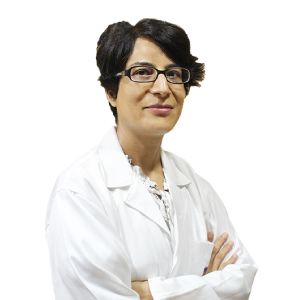Overview
Cerebral palsy is a group of neurological disorders that affect movement, muscle tone, and coordination, usually caused by brain injury or abnormal brain development before, during, or shortly after birth.
At Sarvodaya Hospital, we offer comprehensive Cerebral Palsy Treatment, combining advanced diagnostics, paediatric neurology, physiotherapy, occupational therapy, speech therapy, orthotics, and surgical interventions when required.
With a multidisciplinary care model, we focus on improving mobility, communication, independence, and quality of life for every child with cerebral palsy through personalised, evidence-based rehabilitation plans.
Why is Cerebral Palsy Treatment Required?
Cerebral palsy affects how a child moves, maintains posture, and performs daily activities, making early and structured management essential. Children may show muscle stiffness or floppiness, delayed milestones, difficulty walking, poor coordination, or speech issues.
Treatment is crucial for managing Cerebral Palsy Symptoms, preventing complications like joint deformities, improving motor function, and enhancing independence. Early intervention helps address challenges related to muscle tone abnormalities, feeding difficulties, behavioural problems, and learning delays. Without timely therapy, the condition may limit mobility and long-term development, making ongoing medical and rehabilitation care vital.
Treatment Approach for Cerebral Palsy
The treatment approach for Cerebral Palsy focuses on improving mobility, managing symptoms, and enhancing the child’s overall development. At Sarvodaya Hospital, every child undergoes a detailed neurological assessment, developmental evaluation, imaging studies, and functional tests to understand the severity and type of cerebral palsy before planning therapy.
Multidisciplinary Care Plan
- Physiotherapy: Strengthens muscles, improves balance, posture, and walking ability.
- Occupational Therapy: Helps develop daily living skills, hand function, and independence.
- Speech and Language Therapy: Supports communication, feeding, and swallowing difficulties.
- Medications: May be recommended to manage muscle stiffness, seizures, or associated symptoms.
- Orthotic Support: Use of braces, splints, walkers, or positioning devices to enhance mobility.
- Surgical Interventions (if required): Orthopaedic surgery for contractures or deformities, and neurosurgical options such as selective procedures for severe spasticity.
This structured, team-based model ensures continuous improvement and developmental progress under expert supervision.
Benefits of Timely Treatment of Cerebral Palsy
Cerebral Palsy treatment aims to maximise a child’s physical abilities, independence, and long-term quality of life. With early intervention and the right therapies, children can achieve significant functional improvements.
- Improved Muscle Strength and Mobility: Physiotherapy and targeted exercises help reduce stiffness, enhance balance, and support better walking patterns.
- Better Motor Coordination: Therapies improve fine and gross motor skills, making daily tasks like grasping, sitting, and standing easier.
- Enhanced Communication and Feeding: Speech therapy helps children improve speech clarity, swallowing ability, and overall social interaction.
- Greater Independence in Daily Activities: Occupational therapy builds self-care skills such as dressing, eating, writing, and personal hygiene.
- Reduced Discomfort and Complications: Medication, orthotics, and timely surgeries reduce muscle spasms, deformities, and contractures.
- Improved Long-term Development: A tailored multidisciplinary plan supports cognitive, social, and emotional growth for better lifelong outcomes.
Post-treatment Lifestyle Modifications
- Regular Physiotherapy: Consistent therapy sessions help maintain muscle strength, flexibility, and improved mobility.
- Assistive Devices and Home Modifications: Using walkers, special seating, braces, or orthotics can support safe movement and daily activities.
- Nutritional Support: A balanced diet chart is essential to maintain energy levels and support healthy muscle and bone development.
- Routine Monitoring: Regular check-ups with neurologists, orthopaedic surgeons, and therapists help track progress and adjust treatment.
- Parental Involvement: Parents should follow home exercise plans, encourage independence, and support emotional well-being.
- Adaptive Lifestyle: Encourage low-impact physical activities like swimming or cycling based on the child’s ability.
Why Choose Sarvodaya Hospital for Cerebral Palsy Treatment?
Sarvodaya Hospital provides one of the most comprehensive and multidisciplinary care programs for children with Cerebral Palsy. With a team of highly experienced neurologists, paediatric rehabilitation specialists, physiotherapists, and occupational therapists, we deliver personalised treatment plans designed to maximise each child’s potential.
- Multidisciplinary Team of Experts: Care is coordinated by paediatric neurologists, physiotherapists, occupational therapists, speech therapists, and orthopaedic surgeons under one roof.
- Advanced Diagnostic Facilities: State-of-the-art neuroimaging, gait analysis, developmental assessments, and sensory evaluations allow precise Cerebral Palsy Diagnosis and treatment planning.
- Specialised Rehabilitation Programs: Individualised therapy plans focus on mobility, posture, communication, motor skills, and daily living activities.
- Child-Friendly Environment: Therapy rooms and rehabilitation areas are designed to make children feel comfortable, motivated, and engaged.
- Custom Orthotics and Assistive Devices: In-house specialists provide braces, splints, walkers, and customised mobility aids tailored to each child’s needs.
- Comprehensive Family Support: Parents receive counselling, guidance on home exercises, and continuous support throughout the treatment journey.
- Holistic, Long-term Care: Regular monitoring helps track progress and ensure that every child receives ongoing support for optimal development.





